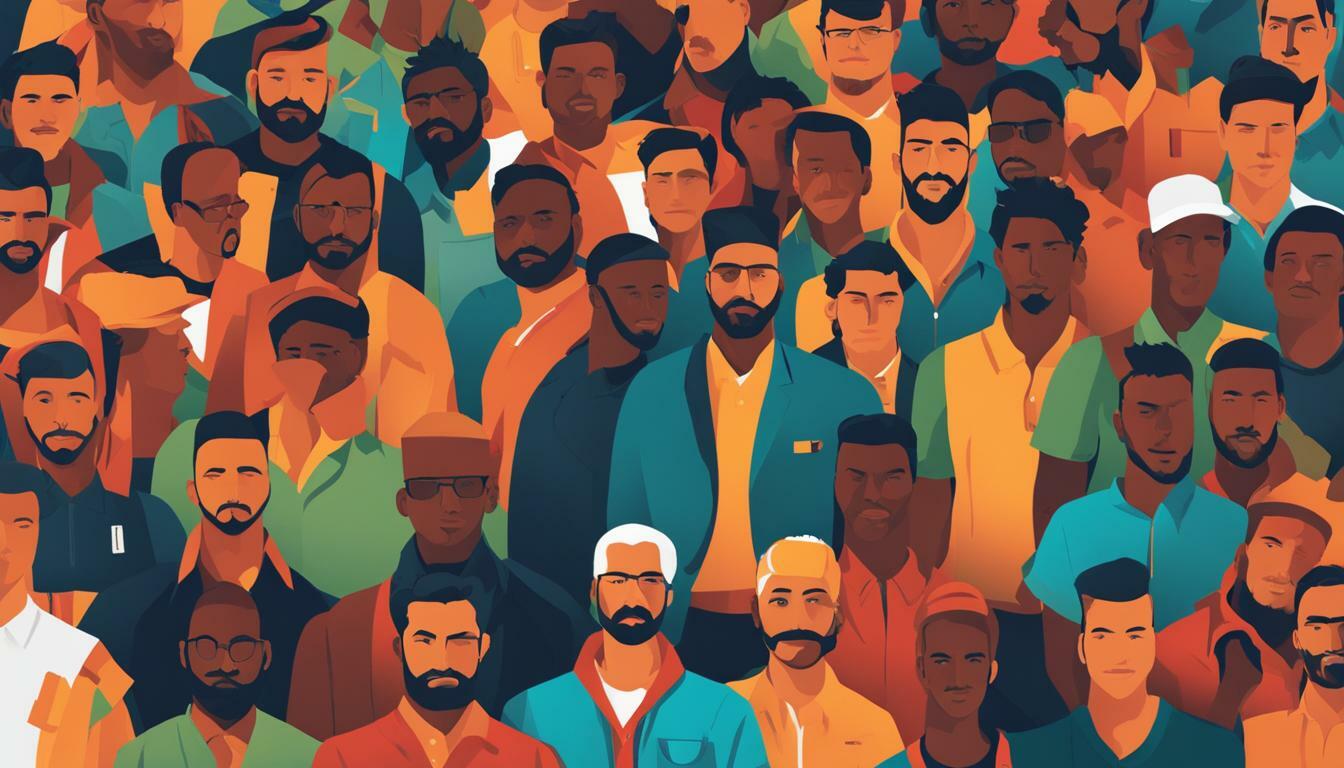Greetings, readers! As a professional copywriting journalist, I am excited to share with you the significance of Men’s Mental Health Month and how we can all join the movement to raise awareness and promote change. Men’s mental health has often been a taboo topic, neglected and not discussed enough. However, through this observance, we can create a positive impact on men’s mental health and well-being.
Men’s Mental Health Month is an annual observance that aims to raise awareness and provide support for men’s mental health issues. It is an opportunity for individuals and organizations to come together to address the unique challenges that men face in terms of mental health. By shining a light on men’s mental health, we can make a difference and create a positive change for men’s well-being.
Key Takeaways
- Men’s Mental Health Month is a vital observance that brings attention to men’s mental health issues.
- Joining the movement is essential in promoting awareness and change for men’s mental health.
- Increased awareness and open conversations can help reduce the stigma surrounding men’s mental health.
- Resources and support are available to aid men in maintaining good mental health.
- The annual observance can serve as a reminder to prioritize men’s mental well-being.
Understanding Men’s Mental Health: An Overview
As a journalist, I’ve had the opportunity to explore various topics related to mental health. One topic that continues to be at the forefront is men’s mental health. It’s important to understand the unique challenges that men face when it comes to their mental health.
Men often feel pressure to hide their emotions and tough it out, which can lead to difficulties in seeking help when needed. This stigma surrounding mental health issues in men can prevent many from getting the support they need.
Statistics show that men are more likely to die by suicide than women, highlighting the need for increased awareness and understanding of men’s mental health issues. Common mental health issues that men face include depression, anxiety, and substance abuse.
Recognizing these challenges is the first step in addressing men’s mental health effectively. By understanding the unique factors that contribute to mental health issues in men, we can work towards providing adequate resources and support.
The History and Purpose of Men’s Mental Health Month
Men’s Mental Health Month has a rich history and a critical purpose. The event started in the United States in 1994 and has since spread globally. During Men’s Mental Health Month, we raise awareness of the unique challenges men face regarding mental health and encourage them to seek help.
The purpose of this observance is to reduce the stigma around men’s mental health and provide a platform for open discussions. Men are often reluctant to talk about their mental health due to societal expectations that they should be strong and resilient. This observance aims to change that perception and promote mental well-being among men.
Over the past few decades, there has been a growing concern over men’s mental health. Men are more likely to commit suicide and struggle with substance abuse than women. By creating a dedicated month for men’s mental health, we can focus our efforts on addressing these issues and finding solutions to improve their mental well-being.
The history and purpose of Men’s Mental Health Month remind us of the importance of addressing men’s mental health issues. By understanding the background and objectives of this observance, we can appreciate its significance and work towards improving men’s mental health.
When is Men’s Mental Health Month?
Men’s Mental Health Month is observed every June, with the goal of raising awareness and promoting mental well-being among men. This month-long observance provides a dedicated time to focus on men’s mental health and break the stigma surrounding mental health issues in men.
During Men’s Mental Health Month, we can all play a role in supporting men’s mental health by engaging in open and honest conversations, sharing resources and information, and advocating for change. By taking action, we can help create a world where men feel comfortable seeking help and addressing their mental health needs.
Raising Awareness and Empowering Change
As we celebrate Men’s Mental Health Month, it is important to raise awareness about the unique challenges men face when it comes to mental health. Too often, men are encouraged to hide their emotions and tough it out, leading to a stigma surrounding mental health that prevents men from seeking help when they need it.
One way to empower change is to break down this stigma and encourage open conversations about men’s mental health. By talking openly with friends, family members, and colleagues, we can create a supportive environment that encourages men to seek help when they need it.
Another important step is to provide access to resources and support. Men’s Mental Health Month provides an opportunity to highlight the many resources available for men, including therapy, support groups, and online resources. By making these resources easily available and accessible, we can help men take charge of their mental health and find the support they need to thrive.
Finally, we can empower change by advocating for policies and programs that support men’s mental health. This includes advocating for workplace policies that prioritize mental health, supporting mental health organizations, and advocating for increased funding for mental health research and treatment. By coming together and advocating for change, we can make a real difference in men’s mental health.
Conclusion
As we conclude our exploration of Men’s Mental Health Month, it’s important to remind ourselves that this observance is not just about a single month of the year. Rather, it’s a reminder to prioritize men’s mental health throughout the year.
By joining the movement, we can make a difference and help raise awareness about the unique challenges faced by men when it comes to mental health. By fostering change and encouraging open conversations, we can create a supportive environment for men to seek help and support.
Let’s continue to prioritize men’s mental well-being beyond Men’s Mental Health Month. Together, we can make a positive impact on men’s lives and mental health. Thank you for joining me on this journey.
FAQ
Q: What is Men’s Mental Health Month?
A: Men’s Mental Health Month is an annual observance dedicated to raising awareness about mental health issues specifically affecting men. It aims to promote understanding, support, and action to improve men’s mental well-being.
Q: Why is raising awareness important?
A: Raising awareness is crucial in combating the stigma surrounding men’s mental health and encouraging open conversations. It helps individuals recognize the signs and symptoms of mental health issues, seek help, and support those who may be struggling.
Q: How can I get involved in Men’s Mental Health Month?
A: There are many ways to get involved in Men’s Mental Health Month. You can participate in local events, share resources and information on social media, organize discussions or workshops, or simply start conversations about men’s mental health with friends and family.
Q: What are some common mental health issues faced by men?
A: Men can experience a range of mental health issues, including depression, anxiety, substance abuse, and suicide. It’s important to note that mental health issues can affect anyone, regardless of gender, and seeking professional help is essential for effective treatment and support.
Q: How can I support a man who may be struggling with mental health?
A: Supporting a man who may be struggling with mental health involves active listening, providing non-judgmental support, encouraging professional help-seeking, and educating yourself about available resources. Let him know that he is not alone and that it’s okay to ask for help.





